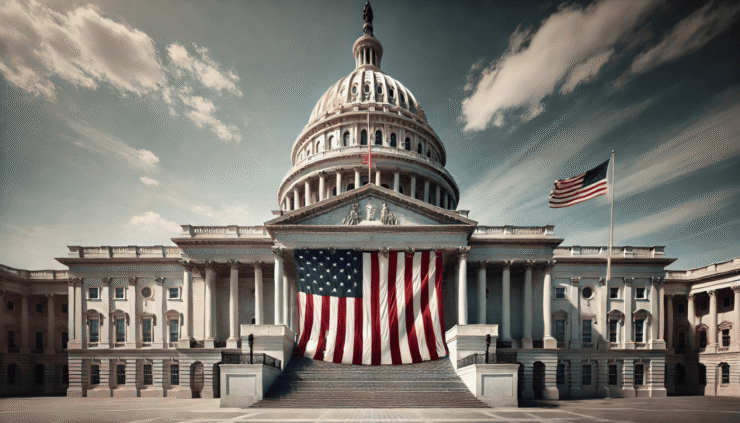The U.S. Senate has officially passed the GENIUS Act, advancing what could become the nation’s first comprehensive framework for stablecoin regulation. The bill passed by a 68–30 margin on Tuesday, moving the legislation one step closer to becoming law—despite unresolved controversy over President Donald Trump’s ties to World Liberty Financial, a firm behind one of the market’s most high-profile stablecoins.
Introduced six weeks ago by Senator Bill Hagerty of Tennessee, the Guiding and Establishing National Innovation for U.S. Stablecoins (GENIUS) Act establishes strict requirements around reserve backing, audit transparency, and anti-money laundering standards for dollar-pegged tokens. The legislation also opens the door for federally chartered banks to issue stablecoins, a move that could reshape how traditional finance engages with digital currency infrastructure.
Speaking on the Senate floor before the vote, Hagerty positioned the bill as a landmark step in America’s fintech leadership.
“Once the GENIUS Act is law, businesses of all sizes, and Americans across the country will be able to settle payments nearly instantaneously rather than waiting for days or sometimes even weeks,” he said.
However, the bill moved forward without amendments to address ethical concerns surrounding Trump’s indirect stake in USD1, a stablecoin issued by World Liberty Financial. That omission drew criticism from Senate Democrats, some of whom had called for provisions to restrict political figures and their families from profiting off crypto legislation.
GENIUS Act Clears Senate But House Path Remains Uncertain
The GENIUS Act’s passage in the Senate marks a pivotal moment in U.S. stablecoin regulation, but its journey has been anything but smooth—and its future in the House remains uncertain. The bill initially failed a cloture vote in May amid strong Democratic resistance tied to President Donald Trump’s growing influence in the crypto space.
While these concerns failed to derail the bill in the second Senate vote, they could resurface during House debates, where Republicans hold only a narrow majority and internal party divisions on crypto policy still linger.
Adding to the political calculus is David Sacks, Trump’s AI and crypto advisor, who publicly hinted in May that the president would endorse a Republican-led version of the bill—a signal that could sway House GOP members but deepen partisan tensions.
Beyond Capitol Hill, the bill’s passage is already catalyzing interest across major tech and fintech firms. According to reporting referenced during the Senate debate, companies like Apple, Google, Airbnb, and X are actively exploring stablecoin issuance strategies. Lawmakers have also raised concerns that Meta could revive its shelved digital currency ambitions if a federal framework is codified.
Treasury Secretary Scott Bessent added further momentum on Tuesday, posting on X:
“Recent reporting projects that stablecoins could grow into a $3.7 trillion market by the end of the decade. That scenario becomes more likely with passage of the GENIUS Act.”
As the bill enters the House, the conversation shifts from whether the U.S. will regulate stablecoins to how—and under whose influence—those rules will be written.
CLARITY Act Faces Scrutiny as House Eyes Market Structure Reform
As the GENIUS Act inches closer to the president’s desk, lawmakers in the House are turning their attention to a parallel effort: the CLARITY Act—legislation aimed at defining the foundational rules for digital asset markets in the U.S.
The bill has cleared key hurdles, passing both the House Agriculture and Financial Services Committees last week. A full floor vote is expected soon, although the path remains fraught with political friction, particularly from Democrats concerned about the Trump family’s deepening involvement in crypto ventures.
At the heart of the controversy is the belief that the push for crypto regulation may be serving more than just policy objectives. Critics argue that the bills could provide a backdoor to institutionalize financial interests tied to Trump-affiliated firms—especially as his allies gain traction in the digital finance space.
Quick Facts
- The GENIUS Act passed the Senate 68–30 and now heads to the House.
- It introduces stablecoin rules on reserves, audits, and AML compliance.
- The bill allows federally chartered banks to issue stablecoins.
- Trump’s indirect ties to stablecoin issuer USD1 remain controversial.
- Tech giants like Apple, X, and Meta are exploring stablecoin strategies.





